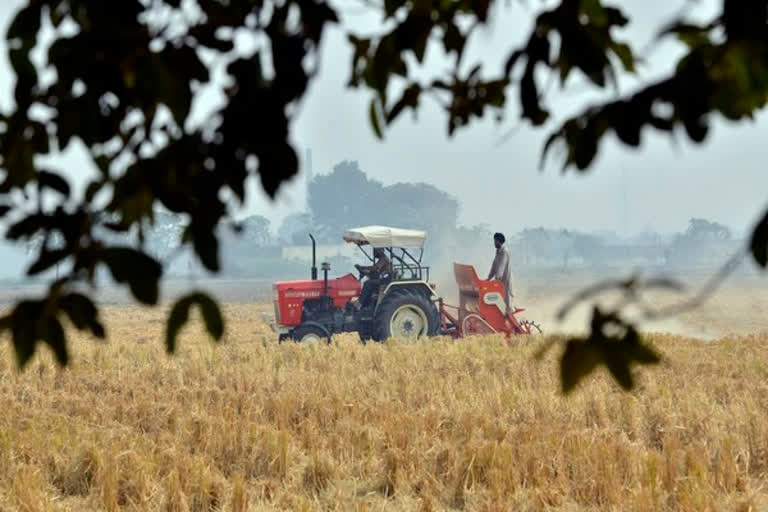New Delhi: The decisions were taken at a meeting of Cabinet Committee on Economic Affairs (CCEA).
For the Kharif crops, the MSP of paddy (common) has been increased from Rs 1,750 in 2018-19 to Rs 1,815 per quintal in the current fiscal, paddy (Grade A) form Rs 1,770 to Rs 1,835.
MSP for soybean has been hiked by Rs 311 per quintal, sunflower by Rs 262 per quintal and sesamum by Rs 236 per quintal. The MSP of tur dal has been increased by Rs 125 per quintal and urad dal by Rs 100 per quintal.
This will help address the issues related to the requirement of pulses in view of the need to meet the nutritional security and protein requirements of a large section of the population. The MSP of jowar has been hiked by Rs 120 per quintal.
In the case of ragi, MSP has been hiked by Rs 253 per quintal. This will promote the cultivation and consumption of nutrient-cereals. Besides, India celebrated 2018 as the National Year of Millets. Food and Agriculture Organisation (FAO) Council has approved India's proposal to observe an International Year of Millets in 2023.
For cotton (medium staple) and cotton (long staple), MSP has been increased by Rs 105 per quintal and Rs 100 per quintal. The highest percentage return to farmers over their cost of production is for bajra (85 percent) followed by urad (64 percent) and tur (60 percent), according to an official statement.
The MSP of jowar (hybrid) and jowar (maldandi) has been hiked by Rs 120, of groundnut by Rs 200.
The increase in MSP for Kharif crops is in line with the principle of fixing MSPs at a level of at least 1.5 times of the all India weighted average cost of production, which was announced in the Union Budget for 2018-19.
Briefing reporters after the Cabinet decisions, Agriculture Minister Narendra Singh Tomar said the decision reflected the desire of the government to give prices which are one-and-a-half times the input costs. He said the government has an aim to double farmers' income by 2022.
Answering queries, he said that the Central agencies procure foodgrains through the State governments and they should create the best processes.
He said the process of e-registration has been started as farmers had to stand in queues to sell their crops.
He said the late arrival of monsoon was a matter of concern and his ministry was in discussion with States.
The new umbrella scheme 'Pradhan Mantri Annadata Aay Sanrakshan Abhiyan' (PM-AASHA) announced by the government in 2018 will aid in providing the remunerative return to farmers for their produce.
This scheme consists of three sub-schemes -- Price Support Scheme (PSS), Price Deficiency Payment Scheme (PDPS), and Private Procurement and Stockist Scheme (PPSS) on a pilot basis.
Also Read: BJP corporator dumps sludge inside Raipur Municipal Corporation House



